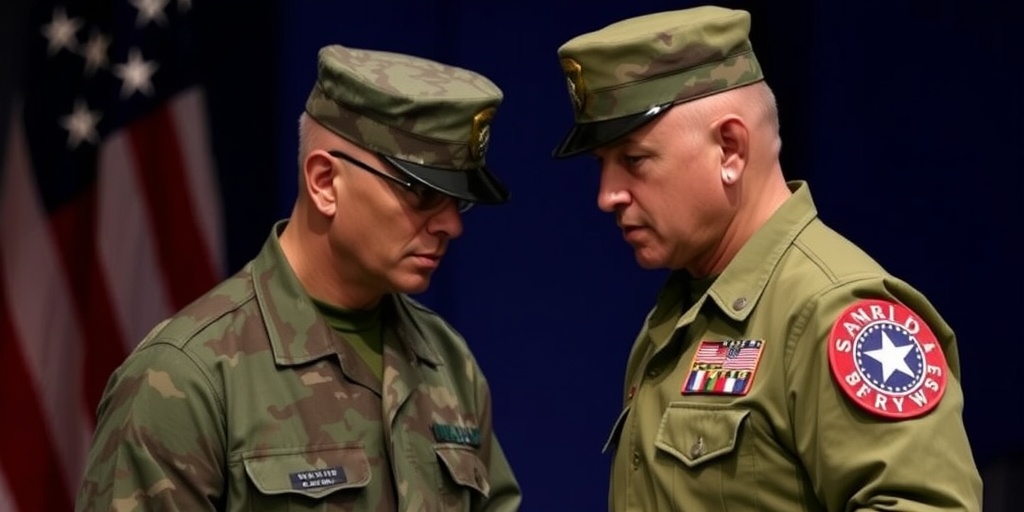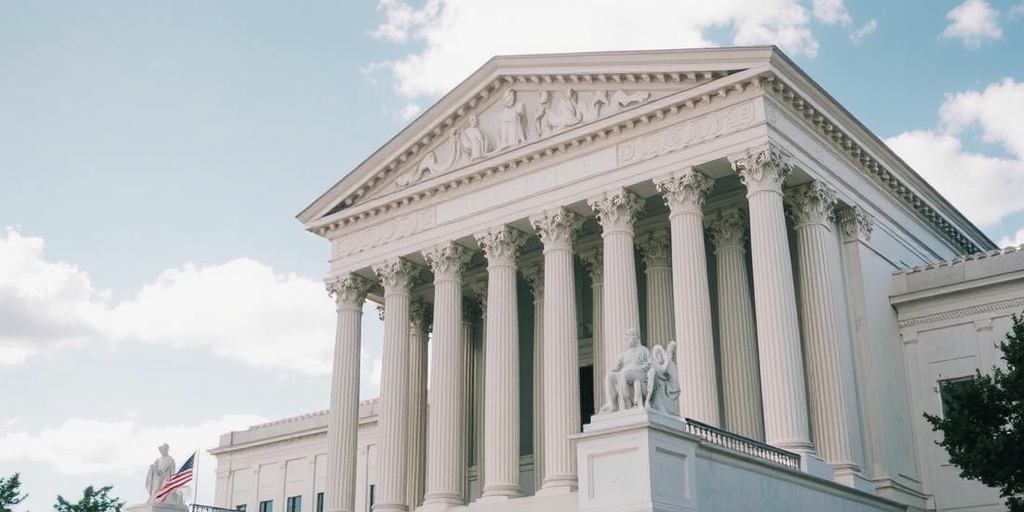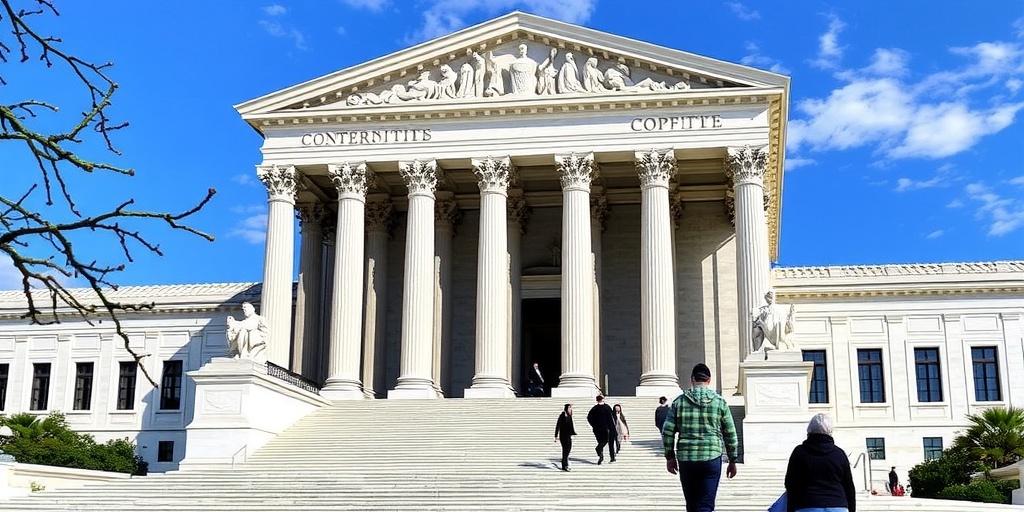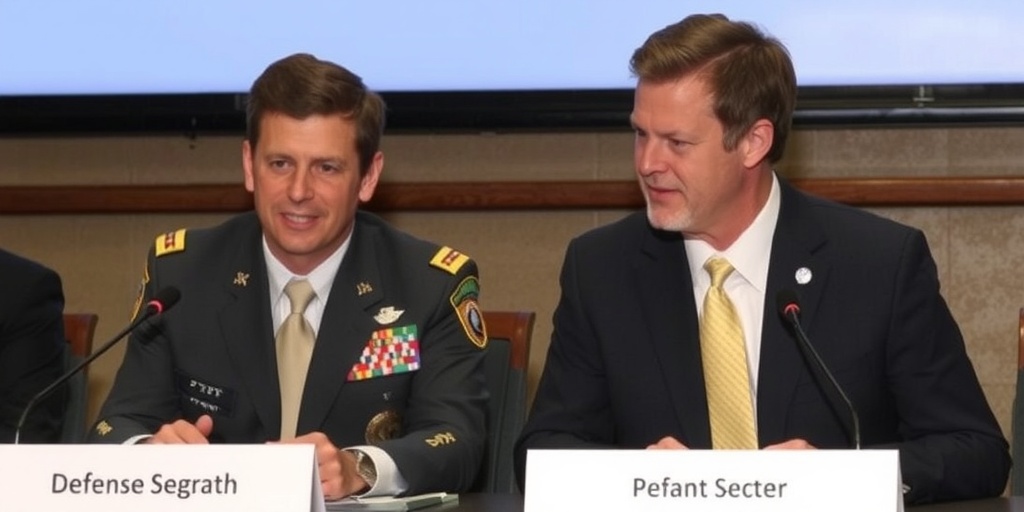Now Reading: Inside the Urgent Response to Musk’s ‘What Did You Do Last Week?’ Email
-
01
Inside the Urgent Response to Musk’s ‘What Did You Do Last Week?’ Email
Inside the Urgent Response to Musk’s ‘What Did You Do Last Week?’ Email

On a Saturday night in the East Room of the White House, a notable discussion unfolded between FBI Director Kash Patel and Director of National Intelligence Tulsi Gabbard during a dinner for the nation’s governors. The conversation was rife with tension, stemming from Elon Musk’s recent ultimatum mandating federal employees to email a summary of their weekly activities. Both Patel and Gabbard, while advocating for Musk’s objective of reducing the federal workforce, recognized the potential consequences of complying with such a directive—it could inadvertently expose national security secrets and sensitive information.
Their concerns echoed throughout the upper echelons of the government as other agency heads initiated similar discussions regarding how to navigate the turbulent waters stirred by Musk’s intervention. Gabbard reached out to John Ratcliffe, the CIA Director, while chiefs of staff and senior personnel officers across various agencies sought advice on how to respond. Employees rushed to managers with fears about job security, anxious they might be fired if they failed to comply with Musk’s order.
Cabinet secretaries found themselves grappling with the challenges of responding to a directive from the influential billionaire without jeopardizing their staff’s safety. As a wave of confusion swept across the federal agencies, several secretaries reached out to the White House over the weekend for guidance on how to proceed.
Patel was among the first to publicly resist Musk’s extraordinary demand. In an email directed to FBI personnel, he asserted, “The FBI, through the Office of the Director, is in charge of all of our review processes, and will conduct reviews in accordance with FBI procedures.” He instructed his employees to pause any responses to Musk’s request, emphasizing a coordinated review approach for any future information required.
Patel’s stance during a videoconference with FBI agents was framed as a demonstration of his support for his staff. Empowered by President Trump, Musk and his team have pushed aggressively through the federal bureaucracy, with Trump’s tweets and statements echoing support for Musk’s actions. During a cabinet meeting, Trump was quick to quash any suggestion of discord, highlighting that all cabinet members were “extremely happy with Elon,” despite visible discomfort among some secretaries as Musk addressed them.
Even as cabinet members applauded Musk’s efforts, many of them privately expressed unease over the chaos that now encompassed their agencies. The Justice Department’s managers were advising staff to refrain from immediate action, while officials at the Department of Veterans Affairs established computer stations to aid employees who felt pressured to meet Musk’s deadline.
At a significant Army base, two civilian workers approached their commander in distress, worried about the potential repercussions of defying Musk’s order—illustrating the anxiety permeating the federal workforce. Despite reassurances from senior leadership to ignore Musk’s directive, these employees succumbed to pressure, crafting their weekly summaries out of fear for their jobs.
Many law enforcement professionals viewed Musk’s demands as an intimidation tactic aimed at instilling fear within the federal workforce, particularly amidst broader efforts by the administration to reduce employee numbers without adhering to civil service protocols. Musk defended his actions during the cabinet meeting, portraying himself as merely a “humble tech support” tasked with ensuring governmental efficiency and cost-cutting measures, including a proposed 15% reduction in overall spending.
Musk referenced a conversation with Trump in which he stated that the president encouraged him to be aggressive in demanding accountability from federal employees. The subsequent email from the Office of Personnel Management, initially labeled as mandatory, later shifted to a “voluntary” status, creating further confusion among the federal workforce.
As the pressures mounted, numerous agencies expressed their reservations about Musk’s tactics without openly challenging them during the cabinet meeting. Statements from the Department of Health and Human Services and the Department of Energy emphasized the importance of their established review processes in handling employee performance, suggesting that the offices would maintain their protocols in addressing Musk’s requests.
Despite the visible discomfort amongst cabinet officials during discussions of Musk’s strategies, the collective endorsement they gave in the presence of Trump highlighted the complicated dynamics at play within the administration. Even as cabinet members appeared supportive during the official proceedings, they found themselves confronted with the unsettling reality of managing a federal workforce experiencing intense anxiety and disarray in the face of Musk’s directives.
Stay Informed With the Latest & Most Important News
Previous Post
Next Post
-
 01New technology breakthrough has everyone talking right now
01New technology breakthrough has everyone talking right now -
 02Unbelievable life hack everyone needs to try today
02Unbelievable life hack everyone needs to try today -
 03Fascinating discovery found buried deep beneath the ocean
03Fascinating discovery found buried deep beneath the ocean -
 04Man invents genius device that solves everyday problems
04Man invents genius device that solves everyday problems -
 05Shocking discovery that changes what we know forever
05Shocking discovery that changes what we know forever -
 06Internet goes wild over celebrity’s unexpected fashion choice
06Internet goes wild over celebrity’s unexpected fashion choice -
 07Rare animal sighting stuns scientists and wildlife lovers
07Rare animal sighting stuns scientists and wildlife lovers





















